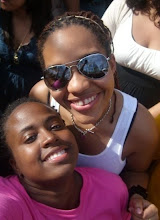 This book starts off quite slowly for me and slowly builds momentum. At first we meet Okonkwo, and he is a man's man. He holds a high status in his village, he has proved his physical prowess time and again during the village wrestling matches and because of this, is quite famous at an early age. He has multiple wives and children and in general has a very severe demeanor. Most of the first part of the book concentrates on developing Okonkwo's character and as we follow his life, we get to learn much about the village, clan hierarchy and Okonkwo's family structure. Suddenly we see the introduction of Anglican missionaries and the entire clan system slowly but surely begins to fall to pieces. Okonkwo's son joins the missionary church and Okonkwo's mourns the loss of his eldest son to the church. Since Okonkwo's entire life has been about proving his masculinity, he feels keenly the loss of his son to "these effeminate men of the church".
This book starts off quite slowly for me and slowly builds momentum. At first we meet Okonkwo, and he is a man's man. He holds a high status in his village, he has proved his physical prowess time and again during the village wrestling matches and because of this, is quite famous at an early age. He has multiple wives and children and in general has a very severe demeanor. Most of the first part of the book concentrates on developing Okonkwo's character and as we follow his life, we get to learn much about the village, clan hierarchy and Okonkwo's family structure. Suddenly we see the introduction of Anglican missionaries and the entire clan system slowly but surely begins to fall to pieces. Okonkwo's son joins the missionary church and Okonkwo's mourns the loss of his eldest son to the church. Since Okonkwo's entire life has been about proving his masculinity, he feels keenly the loss of his son to "these effeminate men of the church".You can see that initially the men of the village tolerated the missionary as a joke, thinking that no one would take them seriously and therefore when the white men set up a judicial court and start hanging villagers for offenses against the Church, they are all taken aback. But of course by then it is too late.
Initially I didn't like Okonkwo as a main character because he seemed to be completely intolerant of change but as the book went on I began to see that he was the eyes through which we began to see the complete and total destruction of an entire village culture. At the end of the book, Okonkwo has committed suicide in disgrace after killing a District messenger. The Anglican Church has completely taken over the area and superceded Okonkwo's peoples' own justice system because they are teaching the "heathens".
The part of the book that actually spoke most to me was the last couple of paragraphs.
Although I didn't LOVE the book, I understand the importance of a work such as this one. We need to see the subjugation of the African people from their own perspective.






